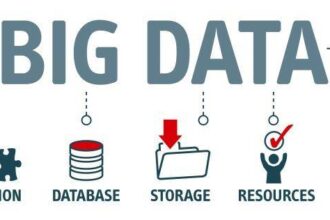These are unprecedented times for the analytics industry. Thanks to new tools, including real-time tracking capabilities, businesses had access to more information about their marketing campaigns than ever before. That’s good news, right? Well, it should be, but having access to more marketing data is only actually good news when businesses understand what to do with it. Otherwise, it’s just noise.
If your brand is trying to navigate today’s crowded and confusing analytics environment, one of the best things you can do is actively seek to reduce the amount of information you’re trying to wrangle.
Instead of looking at everything, you can identify which strategies offer the most valuable insights and set the rest aside. Get started by focusing on these four insights and metrics. You don’t have to look at every data point to understand your business’s big picture, and trying to do so is a recipe for frustration.
Highlight CLV
Businesses often make the mistake of looking far and wide for new customers while neglecting the most importance people: existing clients. While it’s obviously important to grow your customer base over time, it’s much more expensive to identify and onboard new customers than it is to keep existing ones, especially those that drive the greatest amount of profit for your business – and that’s where CLV comes in.
CLV – customer lifetime value – tells you how much revenue a given customer is generating for your business relative to the cost of acquiring and retaining them. You can’t afford to lose the clients at the top of this list, but small, occasional overtures tend to go a long way. Pay attention to CLV and don’t let your desire to grow overshadow working with your current customers.
A PPC Reset
Pay-Per-Click (PPC) marketing is one of the most popular and effective advertising strategies any business can employ, but just because your campaign is generating clicks doesn’t mean that it does a particularly good job closing the sale. Still, you shouldn’t give up on those initial clicks just yet. Instead, it’s important to carefully track PPC campaign data because you can use it to conduct remarketing campaigns.
Remarketing is essentially what it sounds like; based on earlier insights, you have the opportunity to present your brand to potential clients a second time. This can be done a number of ways, depending on your budget, the secondary ad you present, and other factors, but it’s well recognized that remarketing has an improved click-through rate overall, are more cost effective, and help to reinforce brand awareness. In other words, even if this second ad doesn’t produce a sale right away, it’s more likely that potential customers will remember your brand and come back at a later date.
Think Predictively
It’s great to know what your customers have already done – what campaigns engage them and which they ignore, what they’ve already purchased, and so forth – but if you really want to outperform the competition, you need to think predictively.
Predictive analytics includes several different approaches, including forecasting and regression analysis, and is one of three major levels at which businesses can engage with data; the other two are descriptive and prescriptive. Many businesses restrict themselves to descriptive analytics, or what’s described above as knowing what your customers have already done. In recent years, though, there’s been significant growth in the use of predictive analytics. This growth can largely be attributed to advances in in-house analytics platforms and the growing accessibility of machine learning capabilities.
Generate More Reports
While you almost certainly don’t want to look at all the data your assorted marketing campaigns and platforms can generate because you’d never get anything else done, once you’ve determined what data is more valuable to you, it’s important to keep your eye on those metrics.
To that end, increase the reporting frequency for those metrics so that you’re receiving your most valued feedback more frequently and can adjust your campaigns as needed. This is particularly important with PPC marketing, which should be updated at least weekly, but applies to all approaches. Flexibility is vital to your business’s success, but many brands don’t know how to change tactics quickly when the analytics suggest things aren’t working.
Marketing Analytics: Today’s Vital Skill
Ten years ago, knowing how to navigate marketing tools might have been considered the must-have skill for applicants trying to break into this side of sales, but things are changing. Today, everyone has their own “brand” – even the teen around the corner – and the missing link is all about analytics. Almost anyone can produce marketing materials, but to excel, you need to be able to make sense of what happens once those materials are out in the world. Professionals who can answer that question using the right components of the data buffet are highly sought after and can make or break a campaign and, in the long-run, a company.







